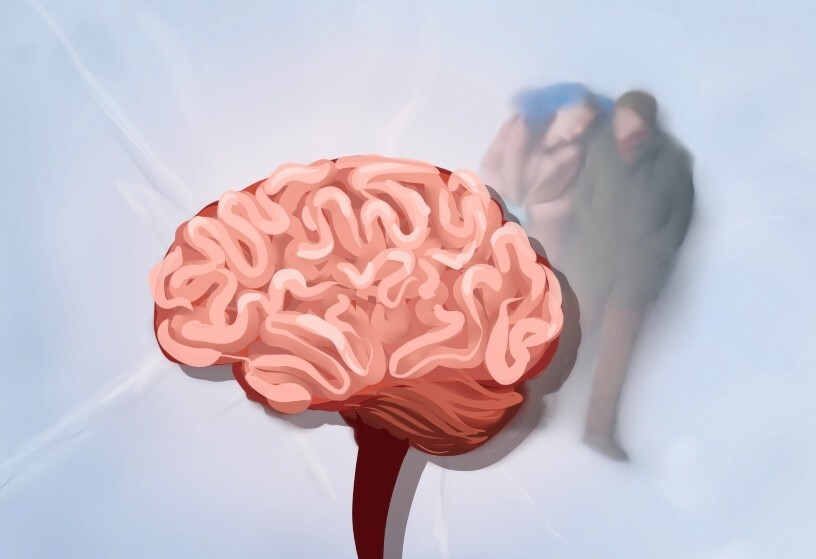A person’s life can be defined by the small things that shape them as a person, including the memories we collect over a lifetime.
Memories consist of little pictures in the mind that recollect events or things that have happened in the past. They build over time as people live and do both ordinary and extraordinary things.

“Eternal Sunshine of the Spotless Mind,” directed by Michel Gondry, explores the concept of memory and loss through a medical procedure in which a person can remove the memories of a chosen person.
The film opens with protagonists Joel Barish and Clementine Kruczynski navigating an odd yet cute first meeting. This opening quickly cuts to the opening credits, which signifies a change of pace in the film.
As the film goes on, Kruczynski decides to get rid of any memory she has of Barish. After a harsh encounter with her after the fact, Barish decides to do the same, though he regrets this decision as he realizes he may love her.
The concept of memories in the film is very disorienting — the flow of time isn’t linear, and it appears more random than in real life. Most encounters with memories in daily life can feel this way — sometimes, an object or person can help you remember something specifically connected to it.
So why are our memories so important?
Memories are notable parts of our lives. They’re a sort of narrative, shaping who we are.
The good memories remind us of the things we love. Fond memories you can have include going to your favorite restaurant, getting that one ice cream flavor, or being with a loved one. They all create aspects of your identity.
It’s easy to dismiss them when you randomly remember that one embarrassing thing you did five years ago and want to forget it. This is also likely the case when you have certain memories tied to someone who isn’t in your life anymore.
Barish shows what it would be like to lose this connection to your memories. He jumps directly into all of the pain and regret that comes with it. As he chases Kruczynski in his mind, he is scared of losing her completely — both the joyful and painful times.
As he tries to escape his memory being wiped of Kruczynski, he communicates with the memories of her for clarity. In his memory they debate why either of them would try to erase each other. Though it is clear it’s not the real Kruczynski, it is clear that Barish still loves her and regrets his decision.
Memories have a funny way of either creeping up on you randomly or hitting you all at once. Either fleeting or engulfing, they remind us that there is humanity in remembering both the good and the bad.
Our memories serve us well because a “spotless mind,” which is devoid of anything, has nothing to prove for a life well-lived. Forgetting or trying to dismiss these memories can be equal to an empty existence.
On top of this, our memories can serve as a path for growth or better understanding. They are a combination of lessons learned and things well loved.
An important aspect of life is learning from our past mistakes to have a better future for ourselves. Our triumphs, on the other hand, can also motivate us to continue going forward.
The film introduces an interesting concept called mind mapping, which pinpoints a memory in the brain related to a certain object, and it follows that memory until it is eventually erased from the brain. This is an early 2000s concept, but I think it makes it easier to follow an already bizarre idea.
Further, the film creatively explores the idea of memories being nonlinear. As each memory is connected to a certain object, Barish not only has to remember the object, but he also has to explain what it meant to him as well. When he is explaining the memories, he starts to feel the same feelings that he had at the time they formed.
Memories can easily remind us of ways we used to feel in the past. They are a foolproof way of showcasing that we are capable of human emotion, whether it be positive or negative. The film expresses the importance of this through Barish and Kruczynski’s connection.
As Barish and Kruczynski find each other again with their memories erased, they struggle with a newfound realization. Both of them decided to go through this procedure, but with no reason as to why.
To either of them, the possibility of it seems unreal. How do you react to meeting someone new, but you’ve known them the whole time? Barish and Kruczynski don’t take it well at first and argue with each other.
The original meet-cute at the beginning of the film is, in reality, their second time meeting. They discover this fact from a self-tape of both of them separately confessing to erasing each other out of their lives. Conflict arises.
The protagonists eventually come to a resolution, but at what cost? Everything they knew about each other previously is gone and never to be remembered again — making the ending feel bittersweet.
There is a lot to lose when you try to forget the past. The idea of a mind without past thought is an absurd concept.
When it comes to memories, there’s value that lies even in the most painful ones. Altogether, this emphasizes the real power of human connection in the face of both love and loss.
Your memories aim to serve you well, and the spotless mind serves no purpose besides being empty.


















































































































